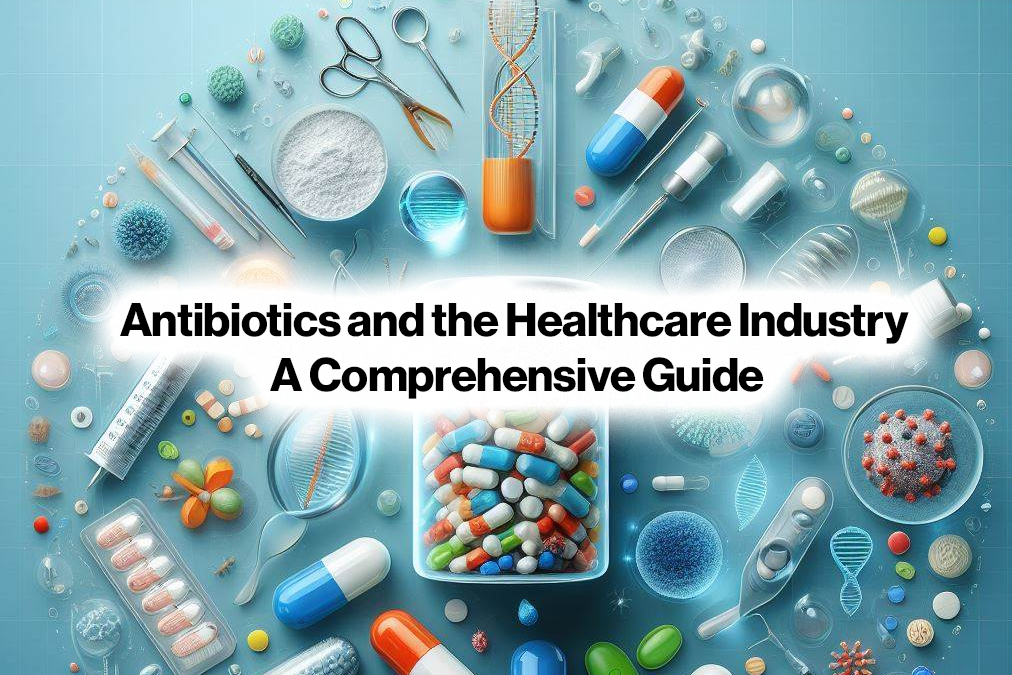In the realm of modern healthcare, antibiotics have emerged as a cornerstone in the treatment of bacterial infections. The remarkable discovery of antibiotics has revolutionized medical practices, saving countless lives and improving the quality of patient care. In this comprehensive guide, we delve deep into the world of antibiotics and their profound impact on the healthcare industry.
Understanding Antibiotics: The Miracle Medications
Antibiotics are powerful medications that combat bacterial infections by inhibiting the growth and replication of bacteria. They have been a game-changer since their discovery, allowing medical professionals to effectively treat various infections, from minor to life-threatening. Penicillin, the first antibiotic, was discovered by Alexander Fleming in 1928, ushering in a new era of medical possibilities.
The Evolution of Antibiotics
Since the discovery of penicillin, the healthcare industry has witnessed an astonishing evolution in antibiotic development. Various classes of antibiotics have been introduced, each targeting specific types of bacteria and infections. From macrolides to fluoroquinolones, these medications have played a pivotal role in reducing mortality rates associated with bacterial diseases.
Antibiotics in Medical Practice
In the medical world, antibiotics are used to treat a wide spectrum of infections, ranging from strep throat to severe respiratory tract infections. They are also essential for post-surgical care, preventing infections that can arise from surgical procedures. Additionally, antibiotics have become indispensable in managing conditions such as urinary tract infections, skin infections, and sepsis.
The Challenge of Antibiotic Resistance
While antibiotics have been a lifeline in healthcare, their widespread use has led to a significant challenge: antibiotic resistance. Over time, bacteria can develop resistance mechanisms, rendering certain antibiotics ineffective. This alarming trend poses a grave threat to global public health, emphasizing the need for prudent antibiotic usage and the development of new antibiotic compounds.
Combating Antibiotic Resistance
Addressing antibiotic resistance requires a multi-faceted approach. Healthcare professionals are encouraged to prescribe antibiotics judiciously, only when necessary. Patients must adhere to prescribed dosages and complete their antibiotic courses to prevent the emergence of resistant bacteria. Researchers are tirelessly working to discover novel antibiotics and alternative treatments to counteract this growing crisis.
The Future of Antibiotics: Innovations and Research
As the healthcare industry continues to evolve, so does the field of antibiotics. Researchers are exploring groundbreaking avenues such as phage therapy, where viruses that target bacteria are utilized, and nanotechnology for precise drug delivery. These innovations hold promise in revolutionizing how bacterial infections are treated, offering hope in the battle against antibiotic resistance.
Antibiotics and the Healthcare Industry: A Symbiotic Relationship
The relationship between antibiotics and the healthcare industry is symbiotic. Without effective antibiotics, medical procedures we take for granted today would carry a much higher risk of infection. From routine surgeries to cancer treatments, antibiotics play a pivotal role in ensuring successful outcomes. Furthermore, their availability has transformed healthcare, making it accessible to a broader population.
Conclusion
In conclusion, antibiotics stand as a testament to human innovation and its profound impact on healthcare. These remarkable medications have reshaped medical practices, ushering in an era of improved patient care and extended life expectancy. As we continue to navigate the challenges of antibiotic resistance, the collective efforts of medical professionals, researchers, and individuals are paramount in preserving the efficacy of antibiotics for generations to come.

Leave a Reply